IAC Legislative Bulletin – January 16, 2018
16 Jan 2018, by admin Share : From the Director
From the Director
Happy New Year! With the start of a new year comes the start of Idaho’s annual legislative session. IAC staff have been working to develop new tools to better communicate with the membership to help keep you informed of legislative proceedings in Boise. In addition to maintaining the IAC bill tracker on the IAC website, IAC will send out a weekly legislative eBulletin providing summaries of legislation being tracked by IAC staff, the impact on counties, and ways you can engage your legislators to advance the interests of counties and your constituents.
The second important tool will be frequent legislative alerts. Legislative alerts will focus on legislation of immediate concern to counties and include bill summaries, estimated impacts on counties, requests for information from counties, and links to email addresses of legislators to facilitate your ability to communicate with them in a timely manner.
Starting today, legislative eBulletins will be emailed to all IAC members on a weekly basis. Legislative alerts will be emailed to more targeted groups on an as needed basis. Legislative eBulletins and legislative alerts will have their own distinctive look and feel. This will help you identify the time-sensitive legislative alerts as soon as you open the email. Please let us know what you think of these new tools. We’ll continue to make modifications until we get it right.
– Seth Grigg, IAC Executive Director
What to Watch
As the Legislature convenes in Boise, there are three things IAC will be watching for in the month of January:
Tax Reform
- That extra $95 million would go a long way toward paying for a repeal of the sales tax on groceries; however, the threat of a Gubernatorial veto of a grocery tax repeal remains.
- Governor Otter is proposing an $85 per child tax credit for Idaho families to help offset the potential tax increase on Idaho families.
- Governor Otter has also laid out a plan to reduce both personal and corporate income tax rates to provide additional tax relief to Idaho families and businesses.
- IACI is once again advocating for increasing the business personal property tax exemption to $250,000 as well as allowing individual counties to exempt any remaining business personal property as a county option property tax exemption.
- Governor Otter has called for a reduction in the state unemployment tax. His proposed reductions are estimated to result in a 30% tax savings to Idaho employers and has no impact on the state general fund.
Dual Waiver
Budget Surplus Eliminator Funding
IAC Priorities
- Increasing the justice property tax levy cap from .002 to .0025,
- Establishing reasonable minimum records retention guidelines for digital law enforcement records,
- Clarifying the timeframe for applying delinquent tax payments,
- Allowing of online publishing of public notices,
- Clarifying the timeframe for accruing interest on property included on the supplemental and missed property tax rolls,
- Removing requirements for separate early voting plans for each election,
- Lowering the minimum age to serve as a poll worker from 17 to 16, and
- Working with the legislature on a concurrent resolution asking Congress to provide a payment in lieu of taxes for private lands transferred to the federal government.






